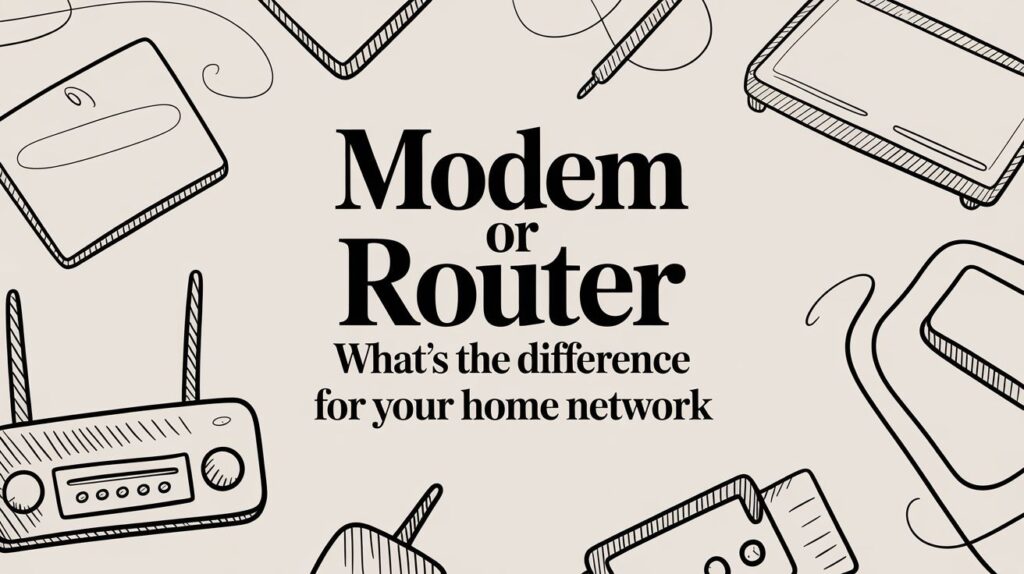Mastering the Art of Connection: How to Win Friends and Influence People in Today’s World

In today’s fast-paced world, making friends and influencing people is more important than ever. Whether you’re looking to grow your network, improve your personal relationships, or just be a more likable person, understanding the art of connection can make a big difference. This article will guide you through key aspects of building and maintaining meaningful relationships, inspired by timeless wisdom adapted for the modern era. Let’s dive into how you can become a people magnet and sway minds with ease.
Key Takeaways
- First impressions matter. Make sure to smile and show genuine interest in others.
- Listen more than you speak. People love to feel heard and understood.
- Persuasion isn’t about arguing; it’s about understanding and guiding gently.
- Handle conflicts with care. Turn them into opportunities for growth.
- Inspire others with enthusiasm and positivity. It can be contagious.
The Power of First Impressions
Captivating Attention with Charisma
First impressions happen fast. In those first few seconds, people decide a lot about you. Think about it: when you meet someone new, what sticks with you? It’s often their energy or vibe. Charisma can be your secret weapon. You don’t need to be the loudest person in the room, but being genuinely interested in others and showing warmth can go a long way.
- Smile genuinely. It’s simple but effective.
- Maintain good eye contact.
- Show genuine interest by asking thoughtful questions.
Creating Lasting Positive Impressions
Once you’ve got someone’s attention, how do you keep it? It’s not just about the first few seconds but also about leaving a lasting mark. First impressions are crucial and can be challenging to enhance, especially in professional settings.
- Remember names and use them.
- Be present and attentive.
- Follow up after meetings or encounters.
A genuine connection isn’t just about the initial spark. It’s about nurturing that spark into a flame that lights up the room long after you’ve left.
Opening Doors to Meaningful Relationships
First impressions can be the key to unlocking deeper relationships. When you leave a positive mark, people are more likely to want to engage with you further. This can lead to meaningful friendships or professional connections.
- Be authentic. People can sense when you’re not.
- Share something about yourself to create a bond.
- Listen actively, showing that you value their thoughts.
Creating a great first impression isn’t about being perfect. It’s about being real and showing that you care. So next time you meet someone new, remember these tips and watch as doors begin to open.
Mastering the Art of Listening

Becoming a Magnetic Conversationalist
To truly connect with others, it’s essential to become a captivating conversationalist. Listening isn’t just about hearing words; it’s about understanding the emotions and intentions behind them. When you listen actively, you engage with the speaker, showing genuine interest in their thoughts and feelings. This not only makes you more appealing in conversations but also helps in building stronger relationships. Consider asking open-ended questions that prompt detailed responses, and don’t shy away from sharing your thoughts to keep the dialogue engaging.
Making Others Feel Valued
Everyone wants to feel appreciated and understood. By listening attentively, you show others that their opinions matter to you. This can be as simple as maintaining eye contact, nodding in agreement, or summarizing what they’ve said to confirm your understanding. These small gestures can have a profound impact, making people feel respected and important. It’s not just about the words exchanged but the acknowledgment of their presence and ideas.
Creating Genuine Connections Beyond Words
In a world dominated by digital communication, creating authentic connections can be challenging. However, by focusing on the art of listening, you can bridge this gap. It’s not just about the verbal exchange; it’s about picking up on non-verbal cues and understanding the unspoken messages. This deeper level of communication fosters trust and understanding, laying the groundwork for meaningful relationships. Remember, the goal is to connect on a level that transcends mere words, fostering a bond that is both genuine and lasting.
In the age of digital chatter, the power of listening is often underestimated. Yet, those who master this art find themselves at the heart of genuine connections, where understanding and empathy thrive.
Winning People Over to Your Way of Thinking
Understanding the Psychology of Persuasion
Influencing others isn’t about manipulation; it’s about understanding and connecting with their desires and perspectives. The key to persuasion lies in empathy and respect. By acknowledging others’ viewpoints, you create a foundation of trust. This isn’t just theory—it’s a practical approach that can transform interactions. Take a moment to truly listen and engage with what others are saying, and you’ll find that your ideas start to resonate more deeply.
Guiding Others Without Friction
It’s tempting to push your ideas, but subtlety often wins the day. Start by framing your thoughts in a way that aligns with the interests of those you’re speaking to. This might mean presenting your ideas as solutions to their problems. Remember, people are more likely to agree with you if they feel their needs are being met. Use gentle language, avoid confrontational phrases, and invite collaboration rather than dictating terms.
Making Ideas Persuasive and Compelling
To make your ideas stick, they need to be clear and engaging. Use stories or examples that illustrate your points vividly. When you share a concept, relate it to something familiar to your audience. This not only makes your idea easier to understand but also more relatable. And don’t forget to appeal to emotions—a well-told story can be more convincing than a stack of facts. By doing this, you transform your ideas from abstract thoughts into compelling narratives that others can rally behind.
Persuasion is not about winning an argument; it’s about creating a shared understanding and moving forward together. When you approach it with sincerity and openness, you pave the way for meaningful dialogue and collaboration.
For more insights on these strategies, consider exploring the work of organizational psychologist Alison Fragale, who provides valuable perspectives on effective interpersonal relationships.
Handling People with Tact and Diplomacy
Navigating Sensitive Situations with Finesse
Dealing with sensitive situations requires a gentle touch. Avoid jumping to conclusions or reacting impulsively. Instead, take a moment to consider the other person’s perspective. This can help in diffusing tension and fostering a cooperative atmosphere. Acknowledge emotions without judgment, and aim to find common ground. Here’s a simple checklist to guide you:
- Listen actively without interrupting.
- Validate feelings before responding.
- Offer solutions that benefit all parties involved.
Turning Conflicts into Opportunities
Conflicts aren’t always bad; they can be opportunities for growth and better understanding. When disagreements arise, focus on the issue, not the person. Empathy plays a key role here. By understanding the underlying concerns, you can transform a potential clash into a constructive dialogue. Try these steps:
- Identify the root cause of the conflict.
- Encourage open communication and expression of ideas.
- Collaborate on finding a mutually agreeable solution.
Empowering Understanding and Cooperation
Building a culture of understanding and cooperation starts with small actions. Encourage appreciation of diverse perspectives and recognize each person’s unique contributions. This not only empowers individuals but also strengthens the team as a whole. Consider implementing these practices:
- Regularly acknowledge and celebrate team achievements.
- Create an inclusive environment where everyone feels heard.
- Promote a culture of continuous learning and improvement.
In today’s world, handling people with tact and diplomacy is more crucial than ever. By fostering an environment of mutual respect and understanding, we pave the way for meaningful connections and successful collaborations.
Inspiring Enthusiasm in Others
Igniting Passion and Motivation
Inspiring others isn’t just about speaking with energy; it’s about lighting a fire in their hearts. Passion is contagious, and when you show genuine excitement about a project or idea, others are more likely to catch that enthusiasm. Start by understanding what makes others tick. Is it the thrill of a new challenge or the satisfaction of a job well done? Once you know what drives them, align your goals with their interests. This way, you’re not just pushing your agenda but creating a shared vision. And remember, enthusiasm isn’t just loud cheers; sometimes, it’s the quiet confidence in a well-thought-out plan.
Creating a Positive Ripple Effect
When you inspire enthusiasm in one person, it can spread like wildfire. Think of enthusiasm as a ripple in a pond. When you throw a stone, the ripples move outward, touching everything in their path. Encourage those around you by recognizing their efforts and celebrating small victories. A simple "well done" or "thank you" can go a long way. Foster an environment where positivity is the norm, and watch as it influences others to adopt the same mindset. This ripple effect can transform a team’s dynamic, making work more enjoyable and productive.
Transforming Collaboration into Joyful Experiences
Collaboration doesn’t have to be a chore. When people work together with enthusiasm, it becomes a joyful experience. Create opportunities for team members to bring their unique talents to the table. Encourage brainstorming sessions where ideas are valued and no suggestion is too outlandish. This not only sparks creativity but also builds a sense of camaraderie. When everyone feels like they’re contributing to something bigger than themselves, work becomes more than just a task—it’s a shared journey. By empowering others to take ownership of their roles, you create an environment where enthusiasm thrives, and success follows naturally.
The Timeless Wisdom for Today’s World

Transcending Cultural and Technological Shifts
In today’s fast-paced world, the charm of timeless wisdom remains a beacon of guidance. Timeless principles help us navigate the ever-changing landscape of cultural and technological shifts. While tech evolves at breakneck speed, these age-old insights anchor us, offering stability amidst chaos. It’s fascinating how ideas from the past continue to influence our present, providing a framework to handle modern complexities.
Navigating Modern Relationships with Confidence
Building strong relationships today requires a blend of age-old wisdom and modern understanding. With social media and digital communication reshaping how we connect, the core principles of trust and empathy remain unchanged. By embracing these enduring values, we can approach relationships with confidence, ensuring they are both meaningful and lasting.
Building a Solid Foundation for Success
Success in today’s world is not just about keeping up with trends; it’s about grounding oneself in principles that have stood the test of time. These foundational truths offer a solid base upon which we can build both personal and professional achievements. By integrating these insights into our daily lives, we ensure that our path to success is both steady and fulfilling.
In an unpredictable global landscape, understanding the parallels between America and ancient Rome can offer insights into geopolitical strategies. As we adapt to a multipolar world, the wisdom of thinkers like Søren Kierkegaard reminds us of the importance of cooperation and adaptation. Explore the discussion on geopolitical strategies to deepen your understanding of these complex dynamics.
Elevate Your Personal and Professional Life
Enhancing Social Intelligence and Communication Skills
To truly connect with others, you need to be more than just a good talker. It’s about listening, understanding, and responding in a way that makes others feel valued. This means practicing active listening, asking open-ended questions, and being genuinely interested in what others have to say. Here’s a quick checklist to boost your communication skills:
- Maintain eye contact to show attentiveness.
- Nod occasionally to signal understanding.
- Ask follow-up questions to deepen the conversation.
Unlocking Doors to Fulfillment and Success
Your personal and professional life is like a garden. It needs regular nurturing to flourish. By setting clear goals and celebrating small victories, you can keep yourself motivated. Consider these steps:
- Define what success means to you, personally and professionally.
- Set achievable goals with specific timelines.
- Celebrate each milestone, no matter how small.
Becoming a Person Others Respect and Follow
Respect isn’t just given; it’s earned. By being authentic and consistent, you build trust and credibility. People are drawn to those who are genuine and reliable. To become someone others look up to:
- Be consistent in your actions and words.
- Admit mistakes and learn from them.
- Encourage and uplift those around you.
"In the end, it’s not about the titles or accolades, but the impact you leave on others."
By focusing on these areas, you can transform your interactions and create a positive ripple effect in both your personal and professional spheres.
Conclusion
In the end, building connections and influencing people isn’t just about following a set of rules—it’s about genuinely caring and understanding others. Dale Carnegie’s timeless advice reminds us that the little things, like a smile or remembering someone’s name, can make a big difference. In today’s fast-paced world, taking the time to listen and show empathy can set you apart. Whether you’re trying to make new friends or lead a team, these principles can help you create meaningful relationships that last. So, take a moment to connect with those around you, and you’ll find that the art of influence is really about being human.
Frequently Asked Questions
What is the main idea of the book ‘How to Win Friends and Influence People’?
The book teaches how to build strong relationships, influence others positively, and communicate effectively to succeed in personal and professional life.
How can I make a good first impression?
Smile genuinely, listen actively, and show interest in others. These actions help create a positive and lasting impression.
Why is listening important in conversations?
Listening shows that you value the other person’s thoughts and feelings, helping to build trust and deeper connections.
How can I persuade others without causing conflict?
Understand their perspective, communicate clearly, and find common ground to guide them gently towards your viewpoint.
What should I do when facing a disagreement?
Handle it with tact and diplomacy. Listen to understand, and try to turn the conflict into an opportunity for cooperation.
How can I inspire enthusiasm in others?
Show passion for your ideas, encourage participation, and create a positive environment that motivates others to join in.








Responses